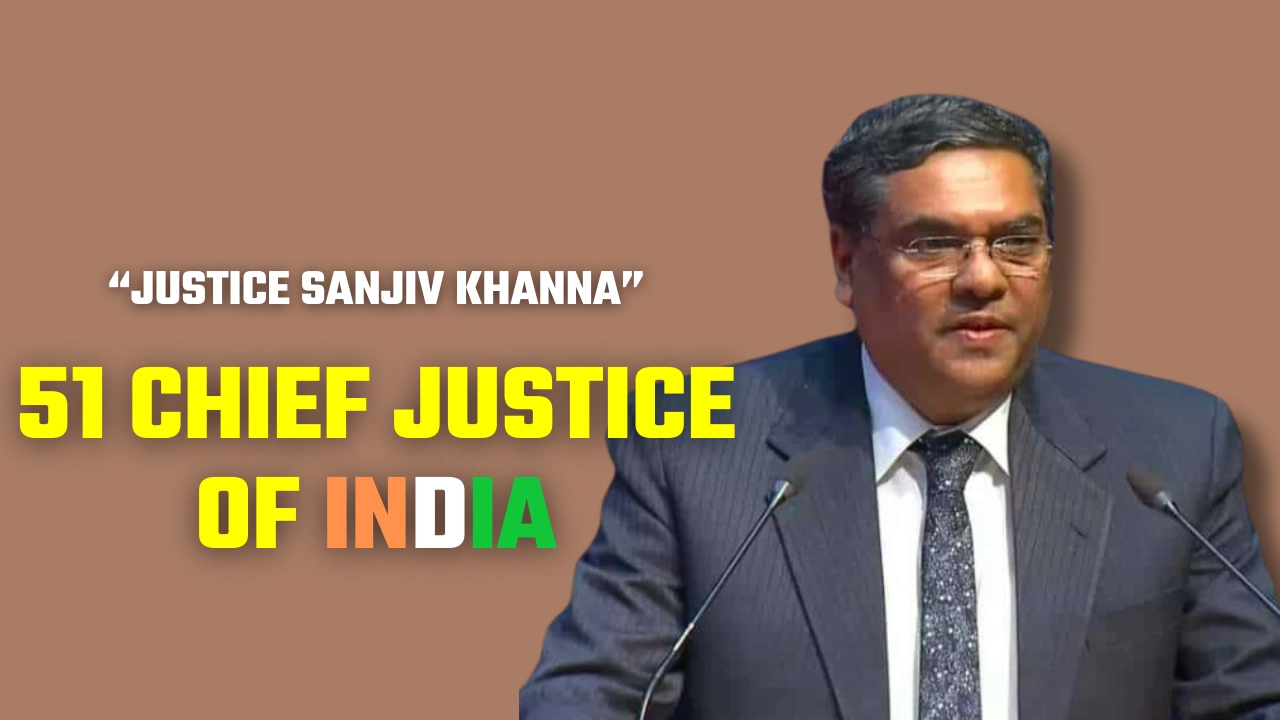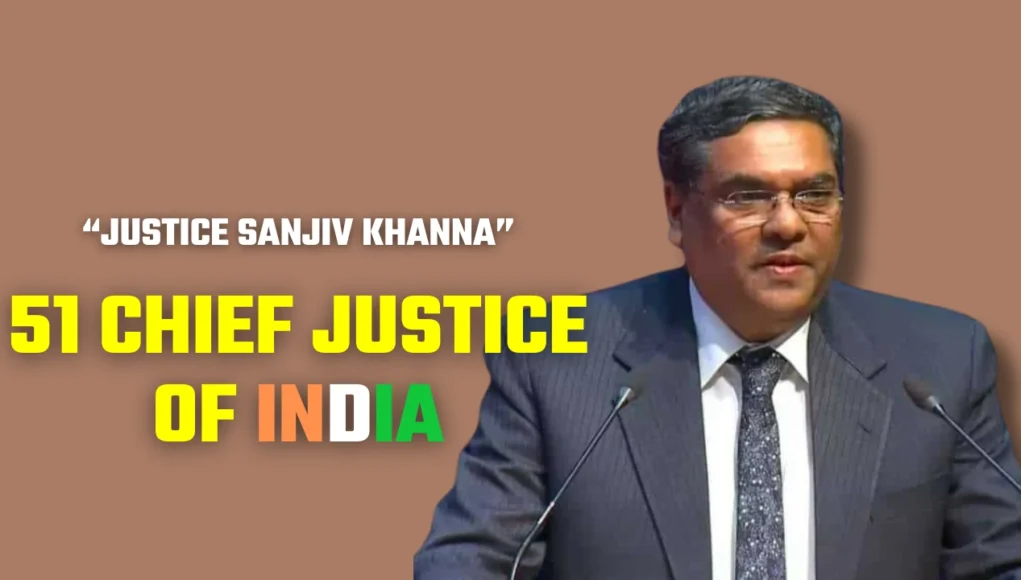
Justice Sanjiv Khanna took the oath as the 51st Chief Justice of India (CJI) in New Delhi on Monday. President Droupodi Murmu led the ceremony, which took place at the Rashtrapati Bhawan.
The event saw notable attendees, including Prime Minister Narendra Modi, Defence Minister Rajnath Singh, Vice President Jagdeep Dhankhar, and former CJI D Y Chandrachud. Justice Khanna steps into the role of CJI following Justice Chandrachud’s retirement from the Supreme Court on Sunday, November 10.
During his farewell speech on Friday, November 8, Justice D Y Chandrachud spoke highly of Justice Khanna. He expressed confidence in his successor’s leadership abilities, calling him “dignified, stable, and deeply committed to justice.”
Who is Justice Sanjiv Khanna:
Justice Sanjiv Khanna, the Supreme Court’s second-most senior judge, was recommended for the position of Chief Justice by the outgoing CJI, DY Chandrachud, who retired on November 10 after serving since November 9, 2022.
Born on May 14, 1960, Justice Sanjiv Khanna started his legal journey in 1983, joining the Delhi Bar Council as an advocate. His expertise spans various legal domains, including constitutional law, taxation, arbitration, commercial law, and environmental law.
His distinguished career also includes serving as the Senior Standing Counsel for the Income Tax Department, and in 2004, he became the Standing Counsel (Civil) for the National Capital Territory of Delhi.
In 2005, Justice Khanna was appointed as an additional judge of the Delhi High Court and achieved permanent judge status in 2006. His work in this role marked the beginning of a prominent judicial career.
Additionally, Justice Khanna made impactful contributions to the Delhi Judicial Academy, the Delhi International Arbitration Centre, and District Court Mediation Centres, significantly shaping judicial practice and policies.
Justice Khanna was elevated to the Supreme Court on January 18, 2019, even without prior experience as Chief Justice of a High Court. He has delivered several landmark judgments, including a notable one in which he granted interim bail to former Delhi Chief Minister Arvind Kejriwal, allowing him to campaign during the Lok Sabha elections.
In another significant judgment, Justice Khanna ruled that delays in legal proceedings could be a valid reason for granting bail under the Prevention of Money Laundering Act (PMLA), specifically in a case involving Delhi’s former deputy chief minister Manish Sisodia.
MORE NEWS HERE:
How to Earn Money by Posting Photos on Facebook in 2025










[…] Justice Sanjiv Khanna Became 51st Chief Justice of India […]